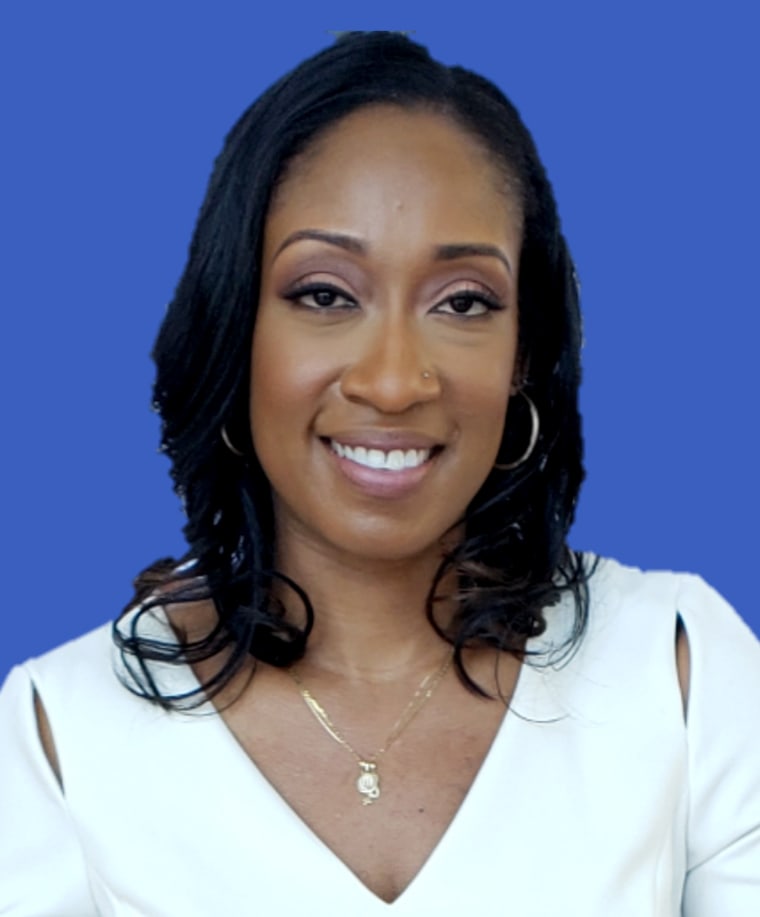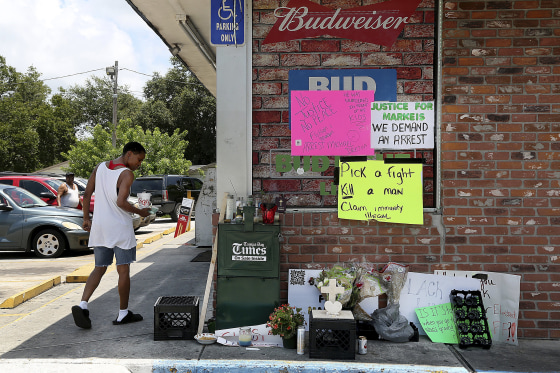In fewer than seven hours of deliberation Friday, six jurors returned a guilty verdict in the case of Micheal Drejka, a white man who shot Markeis McGlockton, an unarmed black man, over a handicapped parking space in Clearwater, Florida, and was originally not charged in the incident due to Florida’s “stand your ground” law.
The openness to interpretation of the stand your ground law means that someone like me can be left in a weaker position when trying to use its protections and failing.
Thank goodness that the jury got it right — and was able to deliberate on the case at all after the police originally gave Drejka a pass. Unlike previous cases where a white man has shot a black man and invoked stand your ground, most famously George Zimmerman’s killing of Trayvon Martin, the shortcomings of this legal provision did not prevent justice from being served.
But the flaws of stand your ground, a Florida legal provision that relieves someone firing a gun in self-defense of first trying to retreat before resorting to deadly force, are still too glaring for any of us to rest assured that because justice was delivered to Drejka, there won’t be more cases like his in the future.

The jury in Drejka’s case underscored the difficulty of applying this confusing law when they themselves asked the judge to clarify instructions on reasonable doubt in the justified use of deadly force (the judge responded that he had already given them all the guidance he could). And I know firsthand how problematic the controversial provision is because I was caught up in its web — and its vulnerability to racial prejudice.
Stand your ground must be repealed before more innocent people are hurt: The victims of those who invoke it to needlessly kill others with impunity, and those, like me, who faced a violent attacker and in relying on the statute ironically weakened my own case for acting in self-defense.
In 2010, eight days after giving birth, my husband attacked me physically and threatened to kill me. I had been suffering his abuse for nearly two years, and the stress and abuse had led me to give birth prematurely. My daughter was in neonatal intensive care as a result, and I was trying to survive so I could get back to my baby, who was fighting for her life. I had obtained a no-violent contact order of protection against him. But that hadn’t stopped him.
Because my father was in the military and always carried a firearm, he taught me how to shoot and how to be responsible, so I was always comfortable around guns. While in college, I attended class at night and sometimes worked late. So for protection, I decided to obtain a concealed weapons permit. I purchased a Taurus 9mm Glock and prayed I'd never have to use it.
I knew that guns were not toys, and discharging one could be lethal. Unlike characters in popular video games, humans get one life. I'd never brandished my firearm, and I'd never threatened anyone with it.
When my husband, who had assaulted me earlier that day, charged at me and threatened to kill me, in a fraction of a second, I made a conscious decision to save my life and spare his. I fired a single warning shot. I was in fear for my life. I had the right to be there — I was in my own home. Yet I was arrested and charged with aggravated assault.
At the time of the incident, I wasn’t aware of the stand your ground statute. On the advice of my attorney, I sought a hearing for stand your ground immunity. But by testifying at the pre-trial hearing, in an attempt to obtain the stand your ground protections, the state was exposed to my defense strategy, giving them a significant advantage at any future trial.
I went into my immunity hearing willing to testify because I had nothing to hide. I had a right to defend myself and depositions confirmed that I had been attacked. But I was still refused stand your ground immunity.
I wasn't surprised, but I was disappointed by the judge’s reasoning. The state attorney, who would later oversee the failed prosecution of Trayvon Martin’s killer, presented the narrative that I was an angry black woman. She had asserted that I was not in fear for my life, and the judge agreed with her.
That left me not only without protection of the law, but in a much weaker position going into my trial. There, I was found guilty and sentenced to 20 years in prison. I served three years. My case was overturned on appeal. At that point, the prosecutor sought 60 years in a new trial. I agreed to a plea deal that included a three year sentence plus two years home detention. I was released in 2017.
The openness to interpretation of the stand your ground law means that someone like me can be left in a weaker position when trying to use its protections and failing. It means others, though, who don’t deserve protection — like Drejka — are shielded too much from prosecution.
Drejka wasn’t originally due to pay for his crime, since the police initially felt that he acted in self defense as allowed under the statute. It took outside pressure to force prosecutors to take up the case.
As the judge in Drejka’s case pointed out, there are already adequate self-defense protections in the law without stand your ground.
Public pressure on prosecutors is good and necessary. Communities protest acts that they consider to be an injustice when the public servants responsible for serving and protecting fail to bring justice. The communities take up the work of speaking truth to power, and it is done outwardly and collectively until those running the justice system see us, literally, and reverse course, as happened when charges were eventually brought against Drejka.
But it shouldn’t take such public pressure for authorities to do the right thing. If stand your ground stays on the books, it will continue to create situations where communities must hold agents of the law to account. As the judge in Drejka’s case pointed out, there are already adequate self-defense protections in the law without stand your ground. Stand your ground only makes justice less likely to be delivered.

